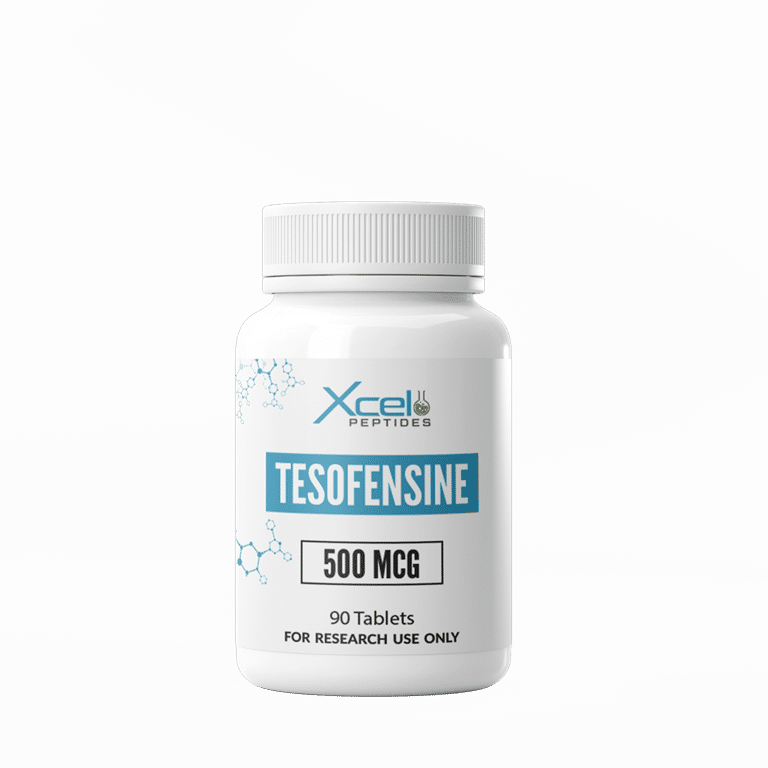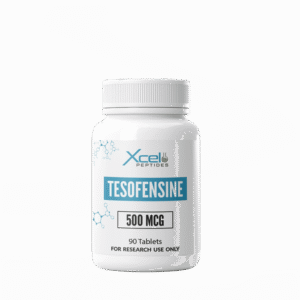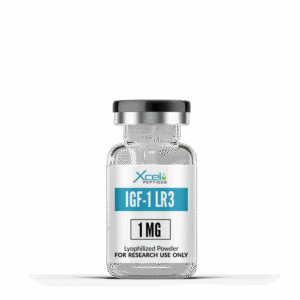Tesofensine
Fr 110 – Fr 150Price range: Fr 110 through Fr 150
Tesofensine represents a cutting-edge research compound in the field of weight management and metabolic health. Its triple-action mechanism, targeting serotonin, dopamine, and noradrenaline, allows it to reduce appetite, enhance energy expenditure, and support fat loss.
Tesofensine: A Powerful Peptide for Weight Loss and Metabolic Support
In the quest for effective weight management solutions, Tesofensine has emerged as a promising compound for research in obesity and metabolic health. Originally developed for neurological disorders, Tesofensine has gained significant attention for its potential to support fat loss, improve metabolic function, and regulate appetite. Researchers and health professionals are increasingly exploring its effects, making it a standout in the field of peptide and small-molecule therapeutics.
What is Tesofensine?
It is a serotonin-noradrenaline-dopamine reuptake inhibitor (SNDRI) that influences brain chemistry to regulate appetite and energy balance. By modulating neurotransmitters, it helps reduce hunger signals and increases energy expenditure, making it an attractive candidate for obesity research.
While it is primarily a research compound, It has been investigated in clinical trials for its ability to aid weight reduction and improve body composition in overweight and obese individuals.
Summary of Characteristics
| Characteristic | Details |
|---|---|
| Chemical Sequence | N/A |
| CAS Number | 195875-84-4 |
| Molecular Formula | C17H23Cl2NO |
| Molecular Weight | 328.3 g/mol |
| Other Known Titles | NS-2330, Tesofensine Hydrochloride |
How Does it Work?
It works by affecting three key neurotransmitters in the brain:
Serotonin – Helps regulate mood, satiety, and appetite.
Noradrenaline (Norepinephrine) – Increases metabolic rate and energy expenditure.
Dopamine – Influences reward pathways, reducing cravings and overeating behaviors.
This triple-action mechanism allows Tesofensine to simultaneously suppress appetite and boost calorie burning, which is why it is often studied as a potential weight-loss agent.
Benefits
Research and preliminary studies suggest that Tesofensine may provide several key benefits:
Effective Fat Loss – Clinical trials have shown Tesofensine can significantly reduce body weight when combined with lifestyle interventions.
Appetite Regulation – By reducing hunger and food cravings, it helps individuals adhere to calorie-restricted diets.
Improved Metabolic Function – It can enhance basal metabolic rate, promoting greater energy expenditure.
Enhanced Mood & Motivation – Its effect on neurotransmitters may support a more positive mindset and reduce emotional eating.
Potential for Long-Term Weight Maintenance – By addressing both appetite and metabolism, it may help prevent weight regain.
These benefits make Tesofensine a unique compound in weight management research, offering a dual approach to fat loss: suppressing appetite while increasing energy expenditure.
Who Can Benefit from Tesofensine?
It is particularly valuable for:
Individuals with obesity or overweight conditions seeking research-based interventions.
Researchers studying appetite regulation, metabolic function, and energy balance.
Scientists exploring new treatments for obesity-related conditions such as type 2 diabetes and metabolic syndrome.
It is important to note that Tesofensine is currently used for research purposes and should only be administered under strict supervision in clinical or laboratory settings.
Possible Side Effects
While Tesofensine shows promise, some potential side effects have been observed during research:
Nausea or mild gastrointestinal discomfort
Increased heart rate or blood pressure
Dry mouth or insomnia
Anxiety or restlessness in some individuals
Most side effects are dose-dependent and tend to diminish as the body adjusts to the compound. Ongoing research is evaluating the safety profile and long-term effects of Tesofensine in various populations.
Why Tesofensine is Different
Unlike traditional weight-loss drugs that often target a single pathway, It works through three critical neurotransmitters, making it a more comprehensive approach to appetite control and metabolism. Its ability to both reduce food intake and increase energy expenditure sets it apart from many conventional interventions.
Furthermore, Tesofensine’s impact on mood and cravings addresses the psychological aspects of eating behavior, which are often overlooked in traditional weight-loss strategies.
Conclusion
It represents a cutting-edge research compound in the field of weight management and metabolic health. Its triple-action mechanism, targeting serotonin, dopamine, and noradrenaline, allows it to reduce appetite, enhance energy expenditure, and support fat loss.
While still under investigation, the compound’s potential for obesity treatment and metabolic support makes it a highly promising tool in research studies. For scientists and researchers looking to explore novel interventions for weight management, It offers a unique and effective avenue for study.
| select tablet | 60tablet, 90tablet |
|---|
Be the first to review “Tesofensine” Cancel reply
Related products
PEPTIDE
PEPTIDE
PEPTIDE
PEPTIDE
PEPTIDE
PEPTIDE
PEPTIDE
PEPTIDE















Reviews
There are no reviews yet.